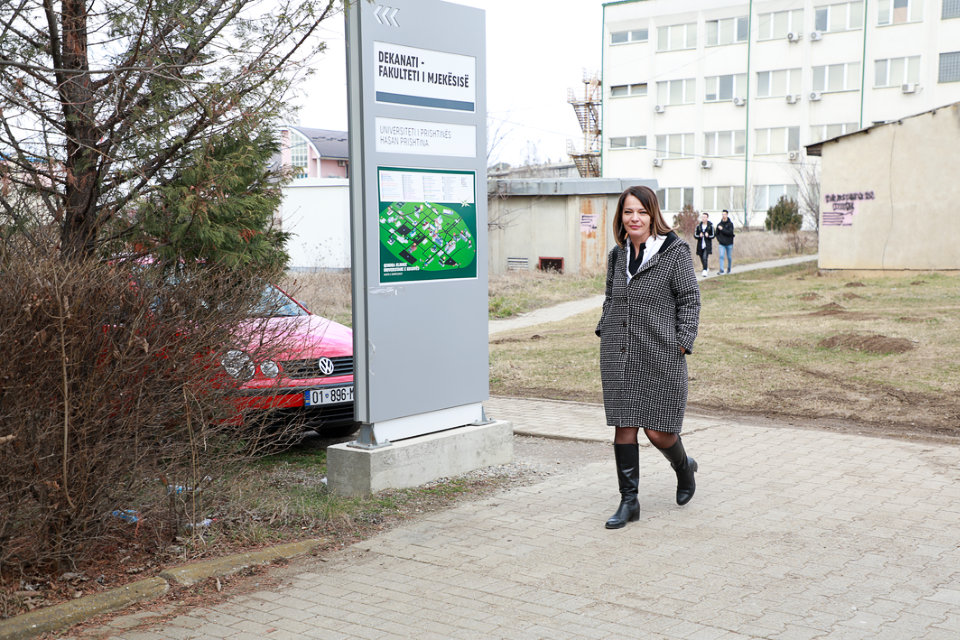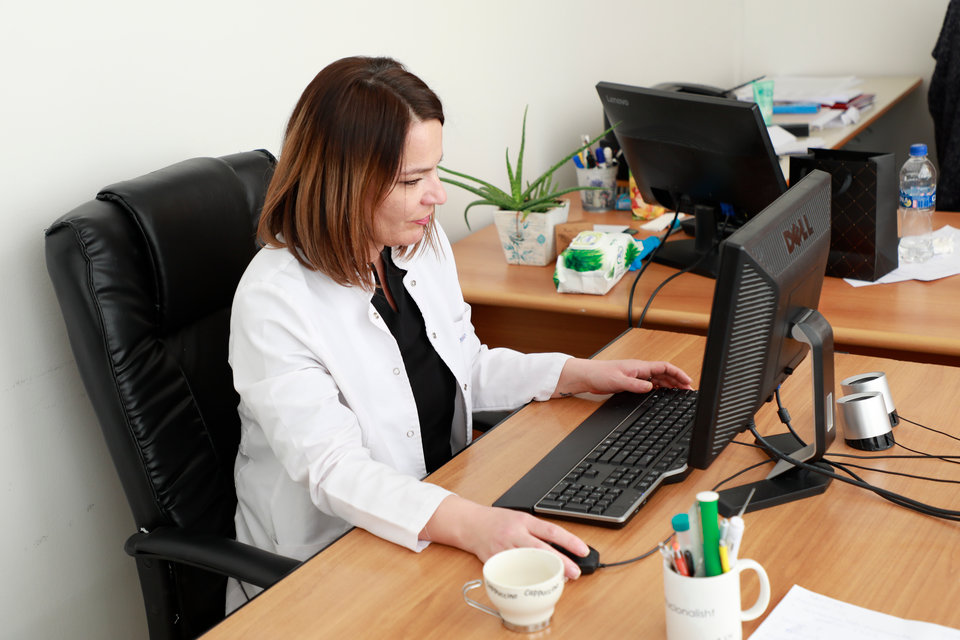Aida Loshaj: A medical researcher from Kosovo hoping to discover cure for an evasive autoimmune disease
Date:

Aida Loshaj is a teaching assistant and lecturer at the University of Prishtina, Faculty of Pharmacy, and makes a big step forward with her exploratory study on the treatment for Guillain Barré syndrome, which still has no cure.
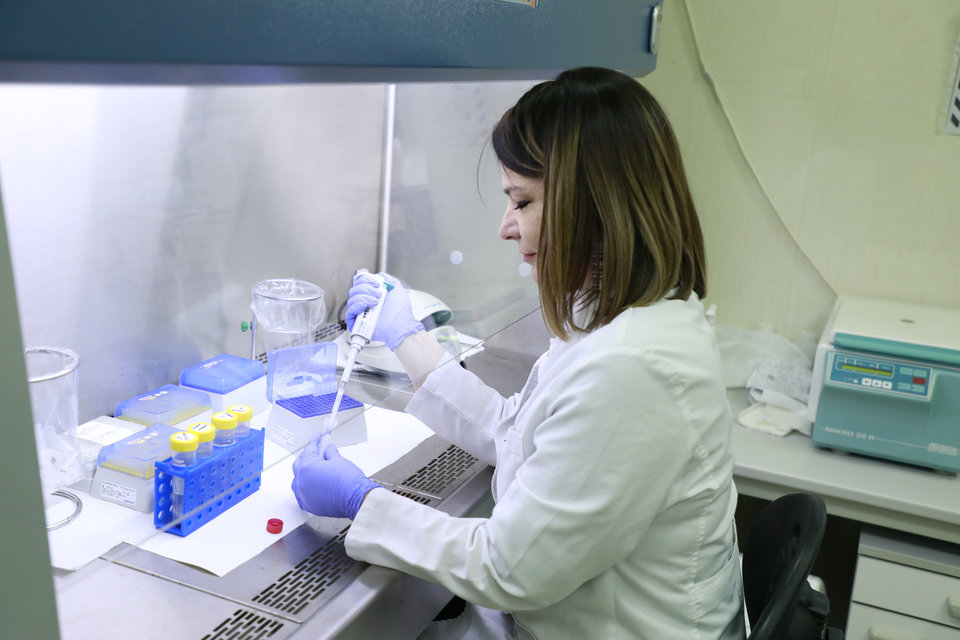
Aida Loshaj, 40, began studying medicine 20 years ago and has been dedicated to science ever since. She completed her specialization in the controls and analysis of medicines. Currently, there are only three pharmacists with this specialization in Kosovo[1].
Aida finished her doctoral studies in the Faculty of Pharmacy in Skopje, North Macedonia’s capital, with a multidisciplinary thesis that involved pharmacy, molecular biology and analytics. She chose Skopje because it was an affordable school, not far from home. There, she established a collaboration with the University of Milan. She has published three scientific works from her doctoral studies.
During her PhD studies, together with a team of supportive colleagues, she undertook a project aimed at investigating the underlying mechanisms of human immune diseases. At least that was the initial aim.
The team was generally focused on Guillain Barré syndrome, which is an autoimmune disorder involving muscle weakness caused by the immune system damaging the peripheral nervous system. The cause of this disorder is unknown and there is no cure for it. It can only be managed with symptomatic treatment.
Aida was encouraged to choose this subject by her guide and mentor, Professor Ljubica Shuturkova, who she respects greatly. At that time, it was something novel and barely studied. Just like any other scientific research, it was tedious work, with lots of ups and downs along the way, but certain results have been achieved.
The team found a connection between Guillain Barré syndrome and one type of microorganism, which is suspected to trigger this perilous disease. There has been previous research of this kind, but professor Shuturkova’s team has made advances with quite a worthy outcome.
The team hopes that, based on their research results, they can try to develop a biomedicine based on protein. Now, Aida is writing a review article on the current findings for the treatment of Guillain Barré syndrome and the future prospects for this treatment, while connecting it to her discoveries. There is still a long way to go before a cure or vaccine is available on the market, but this is a big step in the right direction.
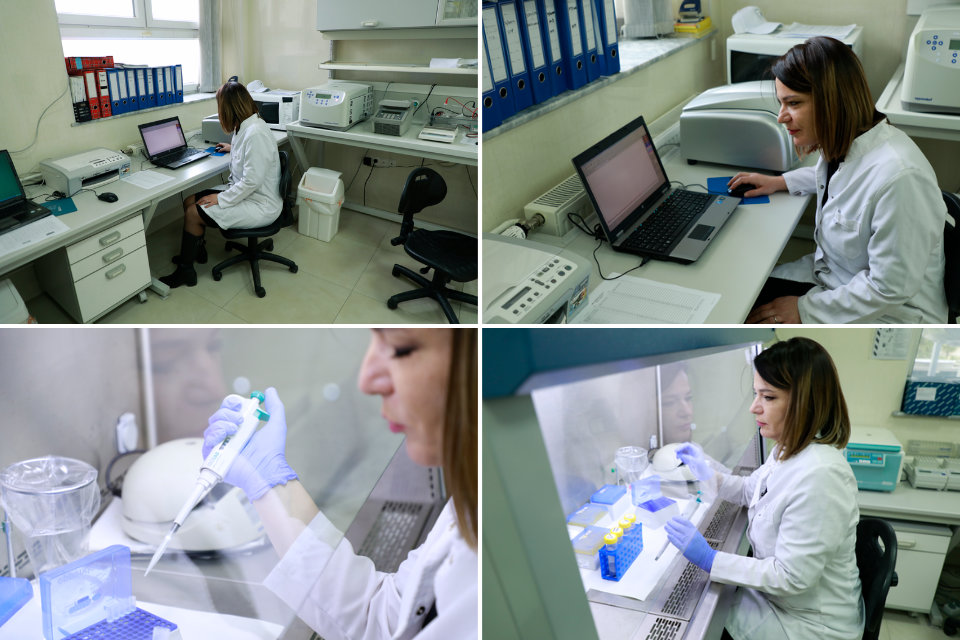
Making time for it all
Aida is a mother of two, aged 8 and 14, and just like millions of women around the world, she has to juggle work and family, and, if the fates allow, find some personal time.
Aida says that she works three shifts: it’s work, then home being a mum, and then a third shift at night when she tries to study or do something just for herself.
“It is not easy,” Aida notes. “But I'm very proud that I managed to finish my studies, both professional and academic, being a fulltime mum of two wonderful children.”
Aida believes there are barriers that can hold women back from advancing in the science field. A woman who loves her job and is willing to dedicate her life to her work and has a family at the same time can face stereotypes and prejudices. For some reason, working women are often blamed for sacrificing their families and having too many obligations.
“I guess I didn't have that kind of barriers in my career and in my life,” Aida continues.
Aida is also proud of her research results that appeared to be more substantial than she initially expected.
“My research is a very specific and narrow area. I know my daughter understands what I’m doing.
Teaching the new generation of doctors
“I was the first generation of pharmacists at the University of Prishtina,” Aida says proudly.
 I was the first generation of pharmacists at the University of Prishtina.”
I was the first generation of pharmacists at the University of Prishtina.”
— Aida Loshaj
The Pharmacy Department was opened in 1996, when Aida finished her studies. “I was a good student and they needed teachers because it was a completely new branch of the medicine faculty.”
Aida applied and was offered a job immediately. She has been teaching drug quality and safety for over 13 years. Altogether, there must be about 500 young people who she’s had as students, most of them female.
“Women are great researchers,” she claims. “They are very disciplined, accurate, responsible. And very often, I find their results in the lab more reliable, just because they are so diligent and patient.”
Women are great researchers. They are very disciplined, accurate, responsible.”
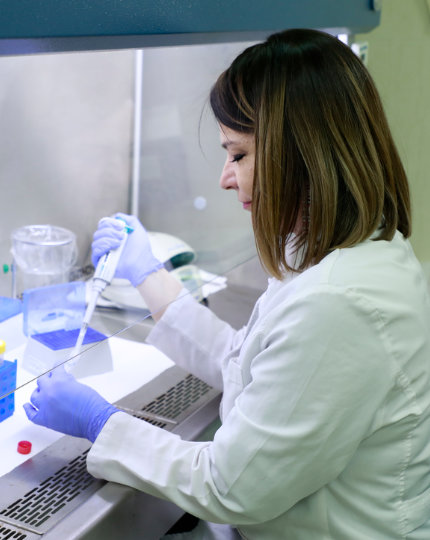
An ideal scientific team, also the most creative and most productive team in her view, is a balanced and diverse one, where men and women are equally represented.
Aida’s outlook for her future
After finishing her current research, Aida will continue with a new project focused on ‘pharmaco-environmentology’, which is the impact of pharmacotherapy on the environment. This is a topic closely related to public health, which remains unaddressed in Kosovo.
“I'm quite involved in collecting information on this new research now, to see if it is possible, if it will be useful.”
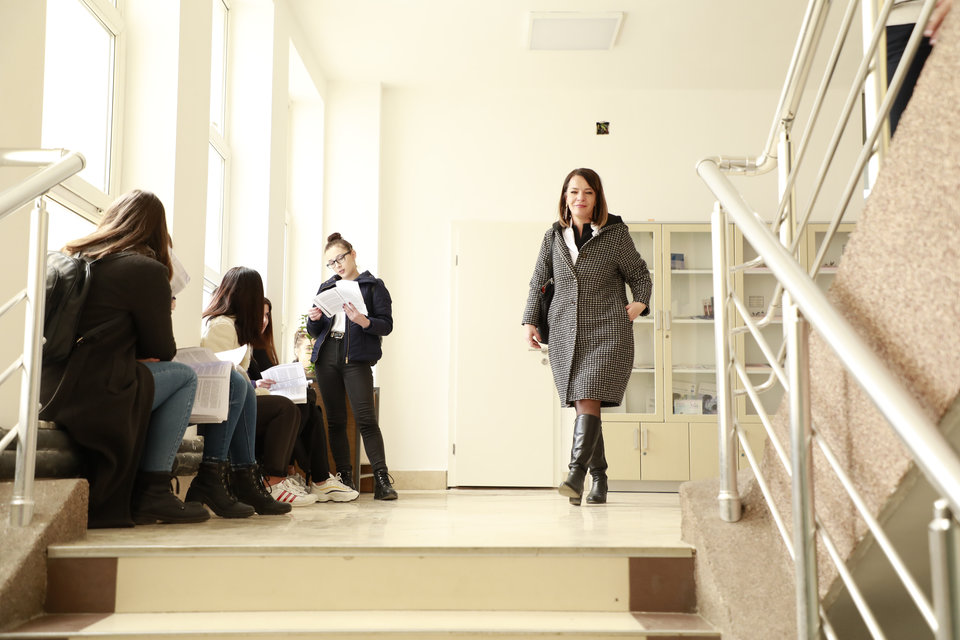
Aida is very proud of the fact that she has completed her studies and has become a recognized professional and an accomplished specialist. “I want to dedicate all my success to my mother. I wouldn’t be who I am today if I wouldn’t have her support, encouragement and unconditional love. Although she’s no longer with us, she’ll always be my source of inspiration in each and every step I take.”
She thinks that the best investment for a woman is to learn and gain knowledge. “Because knowledge is something that no one can take from you,” says Aida, “And, it usually takes you towards self-confidence and, hopefully, a good life. Go ahead and do this for yourself.”
 Knowledge is something that no one can take from you. It usually takes you towards self-confidence and a good life.”
Knowledge is something that no one can take from you. It usually takes you towards self-confidence and a good life.”
— Aida Loshaj
Let’s reimagine our world. Equality everywhere. How? Generation Equality has the answers! For the 25th anniversary of the Beijing Declaration and Platform for Action, we asked 25 women to probe still hidden issues and share inspiring ideas on getting transformation going, for good.
[1] All references to Kosovo on this website should be understood to be in the context of United Nations Security Council Resolution 1244 (1999).
